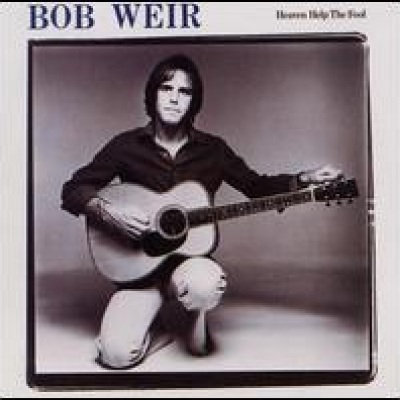
Heaven Help the Fool
by Lindsay PlanerIssued half a decade after his first solo LP, Ace (1972), Heaven Help the Fool is the antithesis of Grateful Dead guitarist Bob Weir's debut effort. Although initially dismissed by critics and Deadheads alike as a slick, soulless, L.A.-sounding disc, the passage of time has somewhat mitigated that assessment -- but not by very much. One of the primary factors in the decidedly over-produced and at times uncomfortable-sounding approach can be directly attributed to the absence of his Grateful Dead bandmates. This is in direct contrast to Ace -- which was, in reality, a full-blown Dead album in disguise. Another common thread is producer Keith Olson. As he had done with the Dead's Terrapin Station (1977) long-player the previous year, Olsen obscures some uniformly interesting melodies with disco-laden arrangements, the most blatant offenders being "Wrong Way Feelin'" and a reworking of Marvin Gaye's "I'll Be Doggone." They're abused with synthesizer-drenched rhythms and disposable, generic backing vocals. Even the array of studio talent -- which includes Waddy Wachtel (guitar), David Foster (keyboards), fellow Bay Area Sons of Champlin-founder Bill Champlin (keyboards), Mike Porcaro (bass), Tom Scott (woodwinds), and former Elton John bandmembers Nigel Olsson (drums) and Dee Murray (bass) -- is unable to salvage a majority of the material on Heaven Help the Fool. However, it is Weir's uniformly strong original compositions -- penned with longtime lyrical collaborator John Barlow -- and well-conceived choice of cover tunes which suffer the most. Those wishing to hear infinitely more tolerable interpretations of tracks such as "Bombs Away," "This Time Forever," "Shade of Grey," and Lowell George's "Easy to Slip" should seek out Weir/Wasserman Live (1998). Likewise, the more industrious enthusiast might even wish to locate the Grateful Dead's very occasional live versions of "Heaven Help the Fool" and "Salt Lake City."
